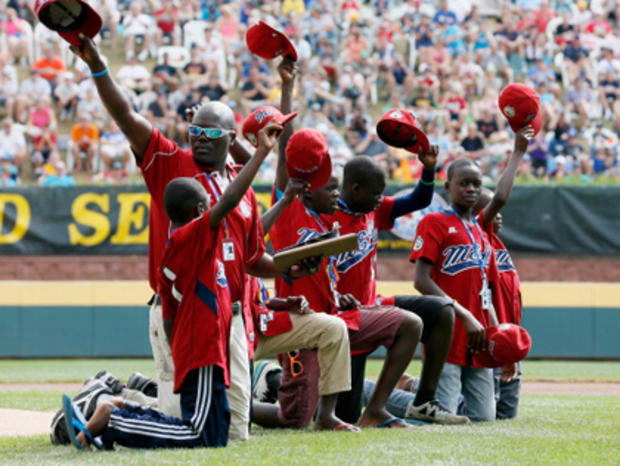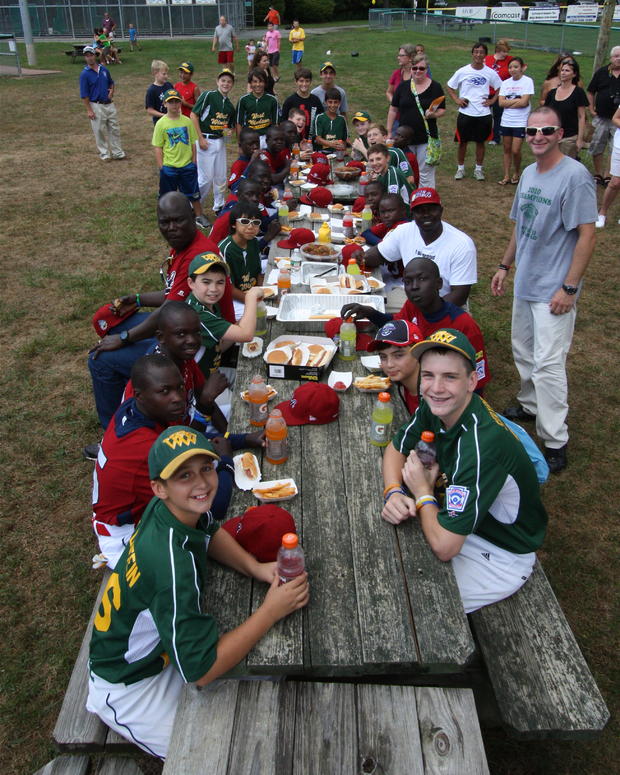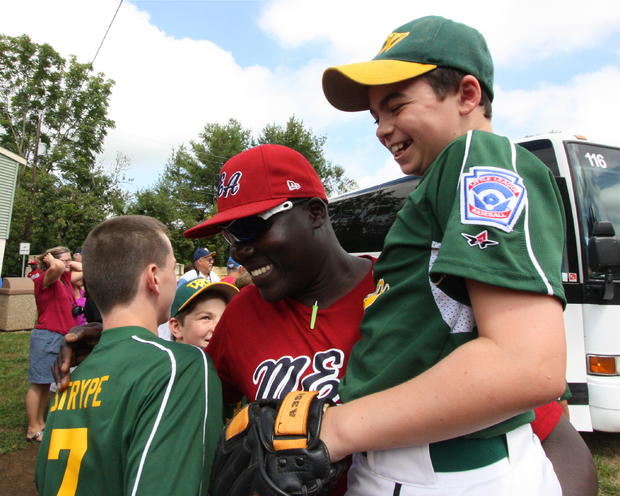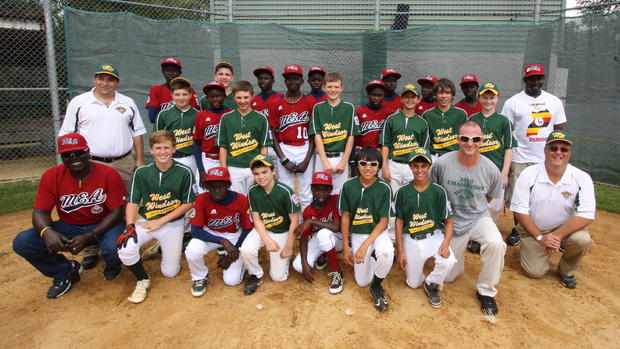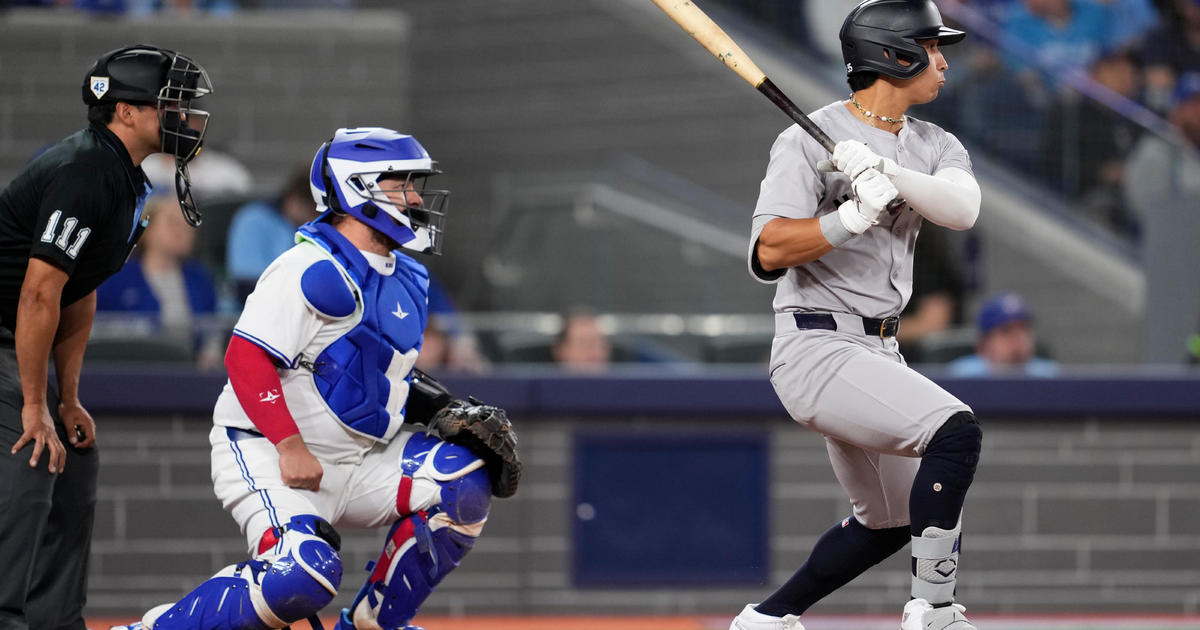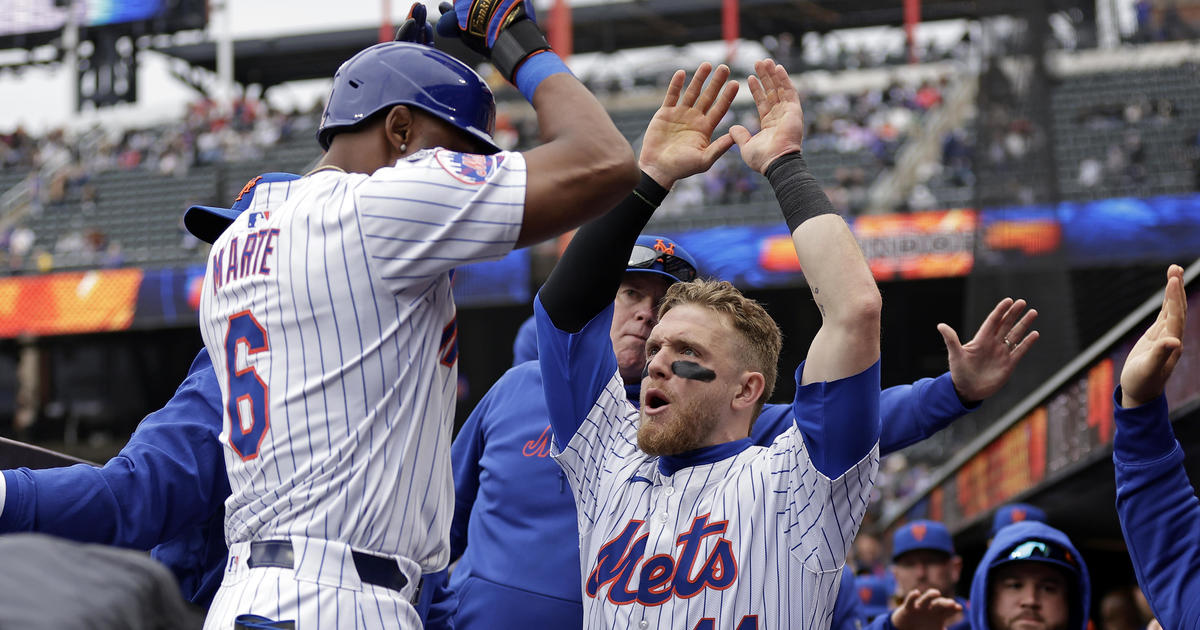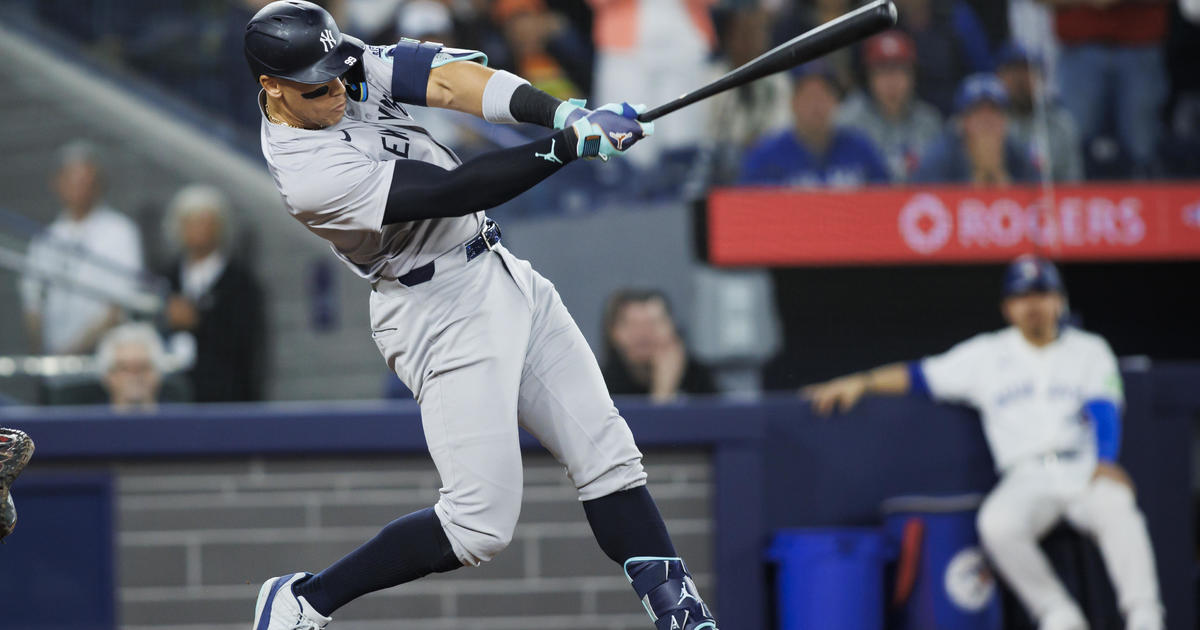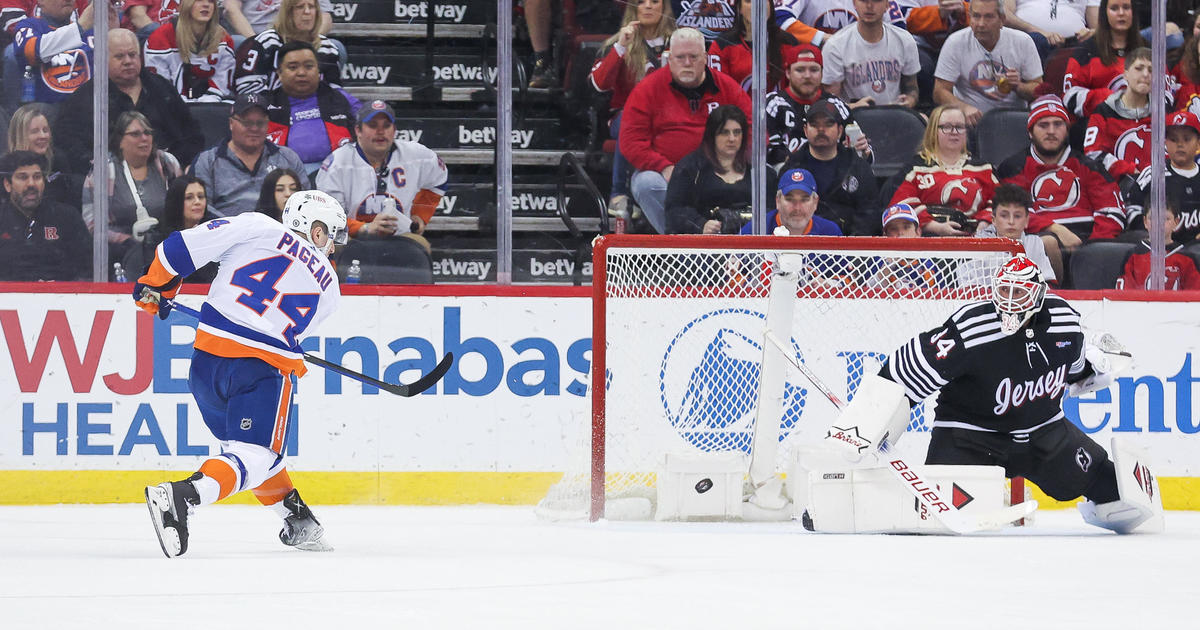Lichtenstein: One Nation, One World Under Baseball; Ugandan Little Leaguers Shine In NJ
By Steve Lichtenstein
» More Columns
The hottest stars touring the United States made a pit stop in the quiet New Jersey suburb of West Windsor on Monday.
Was it the Red Hot Chili Peppers or One Direction? The New York Yankees?
Nah—I'm talking about the guys making the news for their ability to unite all peoples without regard to race, class or immigration status.
I'm talking about the kids from the Lugazi Little League in Uganda, the first team from Africa to play at the Little League World Series in Williamsport, Pa. Though they were eliminated after two losses, they drew tremendous crowds and became the tournament's darlings.
Some of that had to do with ESPN, which never fails to overplay any story, major or minor, to keep viewers tuned in. But all around the country people were smitten by these boys from an often cruel part of the world who played a child's game with infectious joy.
It wasn't easy for them to get here. The program itself is less than 10 years old, with access to fields and equipment limited by the nation's poverty. Disease often turns children into orphans, so things like proving your age to the United States State Department are not a priority, which is why Uganda was forbidden to enter the 2011 LLWS despite winning the Middle East & Africa Regional Tournament.
Fortunately, people like Richard Stanley got involved. Stanley, who also doubles as Lugazi's first base coach, spearheaded efforts to put Uganda on the baseball map. Stanley said it costs up to $35,000 just to get a team to the Regional Tournament in Poland. "The nearest Polish Embassy is in Nairobi, Kenya," Stanley said, "and it takes two weeks for each child and coach to get a visa."
But Stanley was determined to see it all the way through to the U.S. in 2012. Lugazi took a team of 11-year olds to Poland and supplanted Saudi Arabia as the MEA representative in Williamsport for the first time.
Stanley also happens to be a minority owner of the Trenton Thunder, the Yankees' AA farm club, which has a strong relationship with nearby West Windsor Little League. As manager of the 12-year old West Windsor All-Star team, I had stowed my pitch counter for the remainder of the summer. Our run to glory was cut short after four games and, after our club won a late tournament, we all said our farewells to Little League baseball.
A late-night e-mail on August 7 from League President Ellen Vogt changed everything. Uganda was looking for a team near Trenton to scrimmage after the LLWS closing ceremony. I had no idea what kind of support I would get—no one had heard Uganda's story at that point—for a mid-afternoon exhibition on a Monday in late August.
The response was overwhelming. 11 of our 12 players committed to playing, with one family on a vacation. Everyone was honored we were asked. Parents, led by Michelle Welch and Kim Strype, the wives of coaches Jason and Mike, were eager to make this a special community event. There was a bake sale, an equipment drive, commemorative t-shirts, and gifts to Uganda players, including older jerseys that were given to each Uganda player at that evening's Thunder game. Kids who normally have to be coerced into doing extra school credit volunteered an evening after practice to make banners welcoming our guests.
The coaches and I had our hands full trying to get the rust off our boys. Many hadn't swung a bat in three weeks. We watched Uganda win a consolation game over Oregon and felt a little pressure over how to deal with the game.
We decided early that we would tell the boys that this game was as much a cultural experience as a baseball one. We wanted the kids to interact before, during and after the game. Our League board members twisted some arms in the District to allow a continuous batting order with free substitution. We would try to get several pitchers on the mound instead of relying on Ryan Strype, our ace, for the first 85 pitches.
It was all planned to perfection. Except for one thing we couldn't control.
As was stated in Bull Durham, "Sometimes you win, sometimes you lose, sometimes it rains."
I learned yesterday that sometimes, when it rains, you can still come out ahead.
I knew that this was not an ordinary day at the RJ Ward Complex when I arrived two hours before the game and welcomed two older gentlemen wearing Thunder gear. Naturally, I thought they were checking out our field after an inch of rain drenched the area or that they were from the Thunder broadcast team that was setting up a stream on internet radio.
"We're just fans," one of them said, which on other days could be grounds to call the local police for fear of player safety.
The Uganda bus arrived an hour later. We greeted the players warmly, with Uganda manager Henry "Bouncer" Odong immediately lifting my son Jack up high with one arm and then taking David Philbin, our shortstop, up with the other, his trademark move.
I don't know who is working the weather.com site these days, but at best you can say they are bad guessers. They were wrong on the forecast all day. With both teams sitting together enjoying a pre-game meal donated by a local supermarket, more rain battered the town. The Uganda players took to the bus and we thought we were done for the day.
Then it got really bizarre. Despite the rain, despite the off-peak game time, there was a steady stream of people flooding the park with the standing water, including adults who took the day off to witness this event. It felt like the end of Field of Dreams, with a line of cars attempting to turn into the parking lot for no apparent reason. My estimate of peak attendance was about 500, but more impressive was the number of those who volunteered in a last-ditch effort to get a game under way. While the main field was toast, the Minors field looked workable once the rain ceased.
The Uganda players, meanwhile, worked the crowd. Though some would mention that they grew tired of the endless photo requests, they held their poses longer than any of our players could. They signed autographs on baseballs, caps and anything else shoved in their faces. They enjoyed the attention so much that I had difficulty getting them to turn towards their dugout so they could start warming up.
They knew this would all end soon. They visit the Philadelphia area today, taking in tonight's Phillies game. Tomorrow is a trip to New York and the United Nations. On Thursday, they head home. Their school year started yesterday. If our community wanted to embrace them, they welcomed every hug.
I needed one soon thereafter. During the player introductions, the skies erupted yet again. I felt as bitter as a member of the 1972 Olympic Men's basketball team—we had the field ready three times but were denied a game, never mind a gold medal. Must be an extension of a Jet fan's curse, I thought. The Big Tease.
I was proud that our boys, though down about the rainout, remembered that the game was only half the equation. They were eager to get to know their new friends, goofing around in the dugout and playing catch on the wet outfield grass. Jack and catcher Justine Makisimu, who recorded Uganda's first hit in the LLWS, were inseparable for the rest of the day.
That extended into the Thunder game last night. By game time, the area was dry, of course. Both teams got to run out of the dugout onto the field when introduced during a pre-game ceremony. Our players gave each Uganda player a jersey and we posed for more photos.
In the stands, I'm not sure anyone, including me, watched more than a handful of pitches during the game. We were all too busy enjoying the company. I joked with coach Paul Nkata about how his players seemed to enjoy the megacups of soda more than anything. In case Mayor Bloomberg is reading this, Nkata reminded me that obesity is not an epidemic in Uganda.
I talked with Stanley about the team's future—his goal is for an African team to one day win a LLWS title and he will continue to support that effort. Nkata believes that the Lugazi program will grow from the current 60 players to over 100 players next year. He said that his boys are well-behaved but also know that there others ready to work hard for this experience should any of these 11-year olds slip up as they attempt a repeat. Odong expected his club would get to meet his nation's President.
And, as Odong lifted my 6-year old daughter Charlotte up above his shoulder, I explained to him the meaning of "Wait till Next Year." He understood the challenge of returning to the U.S. in 2013. As for me, while my days of coaching Little League are over, the spirit of Uganda baseball suggests that sunny skies are straight ahead.
The T-shirts designed by the parents were titled, "Making History Together."
Have you been following the Ugandan little league team? Let us know in the comments below!
